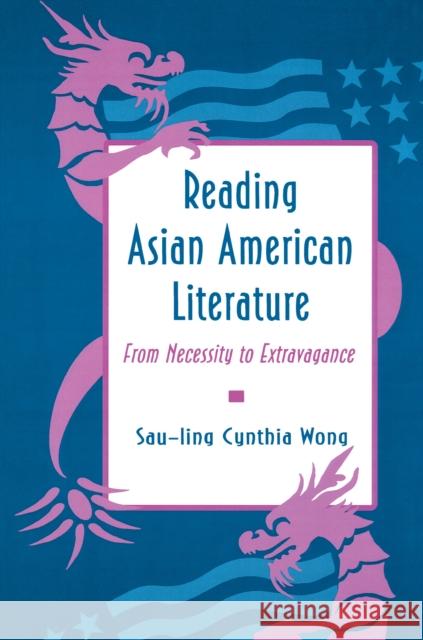Reading Asian American Literature: From Necessity to Extravagance » książka
Reading Asian American Literature: From Necessity to Extravagance
ISBN-13: 9780691015415 / Angielski / Miękka / 1993 / 272 str.
A recent explosion of publishing activity by a wide range of talented writers has placed Asian American literature in the limelight. As the field of Asian American literary studies gains increasing recognition, however, questions of misreading and appropriation inevitably arise. How is the growing body of Asian American works to be read? What holds them together to constitute a tradition? What distinguishes this tradition from the "mainstream" canon and other "minority" literatures? In the first comprehensive book on Asian American literature since Elaine Kim's ground-breaking 1982 volume, Sau-ling Wong addresses these issues and explores their implications for the multiculturalist agenda.
Wong does so by establishing the "intertextuality" of Asian American literature through the study of four motifs--food and eating, the Doppelg, nger figure, mobility, and play--in their multiple sociohistorical contexts. Occurring across ethnic subgroup, gender, class, generational, and historical boundaries, these motifs resonate with each other in distinctly Asian American patterns that universalistic theories cannot uncover. Two rhetorical figures from Maxine Hong Kingston's The Woman Warrior, "Necessity" and "Extravagance," further unify this original, wide-ranging investigation. Authors studied include Carlos Bulosan, Frank Chin, Ashley Sheun Dunn, David Henry Hwang, Lonny Kaneko, Maxine Hong Kingston, Joy Kogawa, David Wong Louie, Darrell Lum, Wing Tek Lum, Toshio Mori, Bharati Mukherjee, Fae Myenne Ng, Bienvenido Santos, Monica Sone, Amy Tan, Yoshiko Uchida, Shawn Wong, Hisaye Yamamoto, and Wakako Yamauchi.











